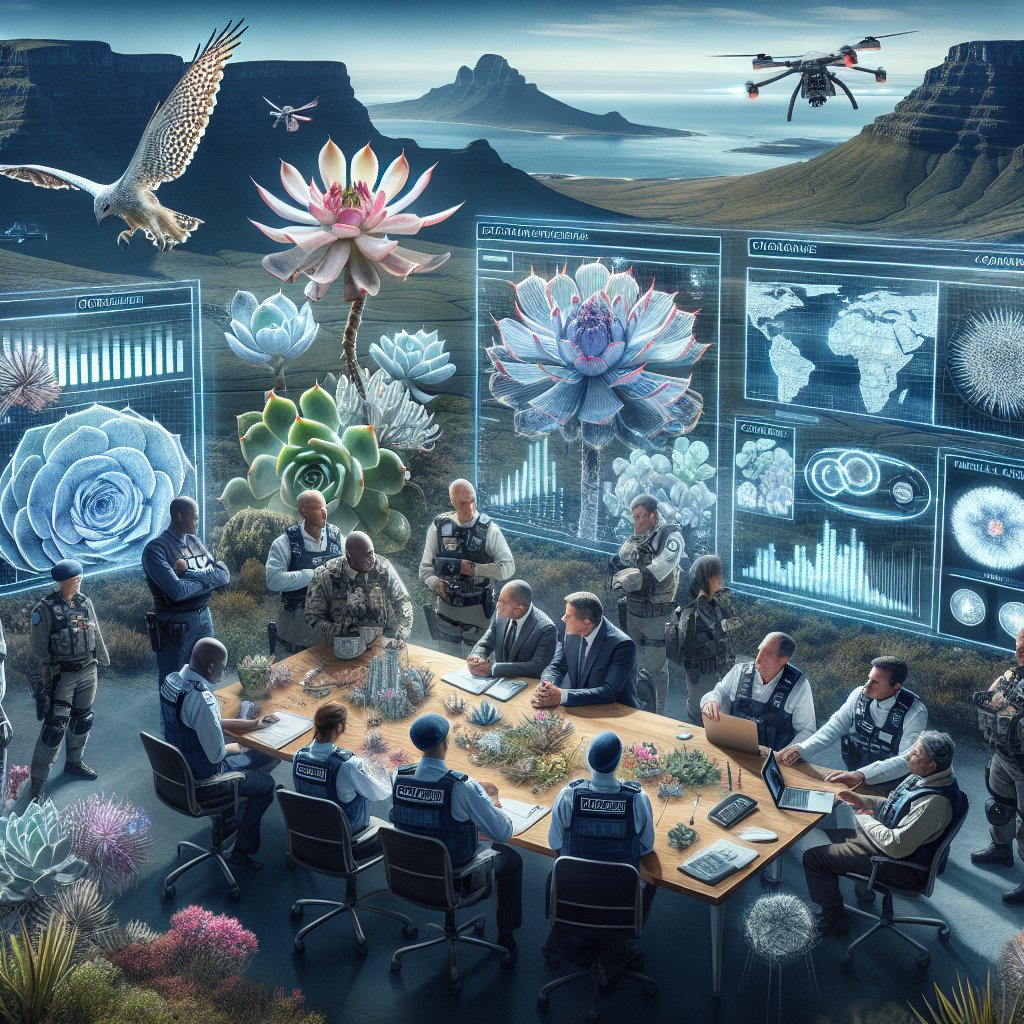Image created by AI
International Call to Combat Succulent Poaching in the Western Cape
In an emphatic call for international cooperation, the Western Cape has spotlighted the escalating issue of succulent poaching, directly appealing to the national government to intervene. This plea follows revelations from a parliamentary reply indicating the provincial government's lack of awareness of measures addressing the foreign demand fueling this illegal trade.
The Democratic Alliance (DA) in the Western Cape highlighted the crucial need for partnerships with East Asian countries, the primary destinations for the poached flora. This region's unique biodiversity has been under siege, with the Western Cape alone housing over half of South Africa's floral species, many of which are exclusive to the area.
The rampant trade, mostly targeted at East Asia's collectors and nurseries, has seen significant interceptions by CapeNature, with over 1.2 million wild harvested plants seized in the last four years. However, less than a quarter of the overall illicit trade is being curtailed, pointing to a much larger issue at hand.
Anton Bredell, responding to queries from DA's spokesperson Dave Bryant, acknowledged the lack of concrete measures in destination countries and pointed to the national strategies proposed to combat the issue, including inter-departmental cooperation and the role of Traffic, the wildlife trade monitoring network, in raising awareness globally.
The focus of poaching efforts in the Western Cape has shifted to succulent genera like Gibbaeum, colloquially known with names such as volstruistone and papegaaibek, all endemic to the region. There's an evolving market demand for specific species, which also dictates the direction of illegal activities.
A dedicated joint task team, including representatives from CapeNature, Sanbi, SAPS, and the National Prosecuting Authority, as well as a provincial biodiversity investigators forum, are at the forefront of these efforts. They strategize on joint operations, discuss suspects, and coordinate their response to the crisis at bi-monthly and semi-annual meetings respectively.
Continued efforts to protect the province's natural heritage hinge on a comprehensive approach—combating syndicates and collaborating with destination countries. Bryant underlined the DA's firm commitment to supporting initiatives to preserve the Western Cape's biodiversity and called for heightened national assistance.










